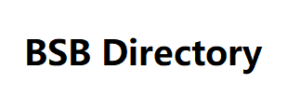History of Islamic Economic Growth in Indonesia
Indonesia is one of the countries with a majority muslim population in the world. Most of the population adheres to islam, bringing many changes to indonesia’s culture and economic history.
Since the days of the hindu-buddhist kingdoms, islam has developed in indonesia and has become one of the determinants of the course of economic history in this country. Along with the growth of islam in indonesia, people have begun to apply islamic economic principles in their lives.
In the early 19th century, most of the population adhered to islamic economic principles, which included the concepts of zakat and qardh (loans). At the same time, most merchants and economic communities use the barter system to exchange goods and services.
Along with the development of the indonesian economy
Islamic economic practices have developed and become increasingly important. In subsequent years, the principles of islamic economics, such as riba, shirk and gharar, have been applied in economic telephone biz practices, such as fiscal, banking, finance and investment policies.
In 1945, the round table conference in yogyakarta discussed the growth of islamic economics in indonesia. At the conference, participants discussed the development of a financial and investment system based on islamic economic principles. In 1952,
Bank indonesia (“bi”) was established to regulate and supervise the financial system in indonesia. Over the following years, bi continued to improve its ability to regulate and supervise the financial system in indonesia.
One of the efforts made is the development of sharia
Based financial products and services that are based on islamic economic principles. In 2006, bi established a policy to allow banks in indonesia to offer sharia-based financial products and services. After this policy was implemented, sharia-based financial products and services in indonesia experienced significant growth.
Various banks and financial BSB Directory institutions in indonesia have started offering sharia-based financial products and services. These products and services include sharia mutual funds, sharia insurance, sharia credit cards and sharia deposits.
Apart from that, various institutions in indonesia have also made efforts to increase understanding of the principles of islamic economics. Several universities and educational institutions have begun offering academic and training programs that focus on sharia economics. Apart from that, various research institutions have also conducted research and studies on sharia economics.
In conclusion, the growth of the islamic economy in indonesia has experienced a significant increase since the beginning of the 19th century. Various sharia-based financial products and services have been offered by various institutions in indonesia. Apart from that, various universities and research institutions have also made efforts to increase understanding of sharia economics in indonesia. Thus, the growth of the islamic economy in indonesia will continue to develop and provide benefits for the indonesian people.







